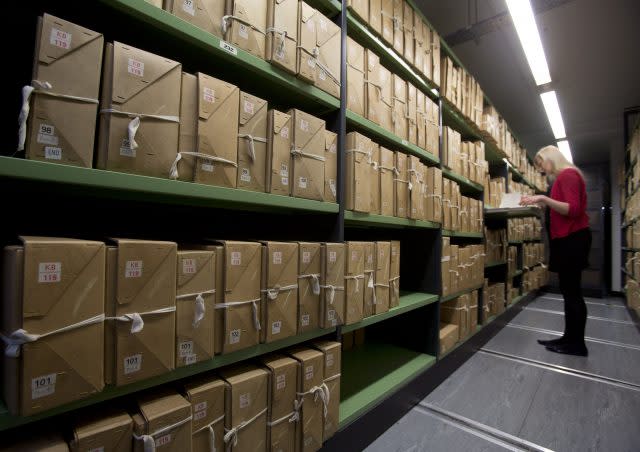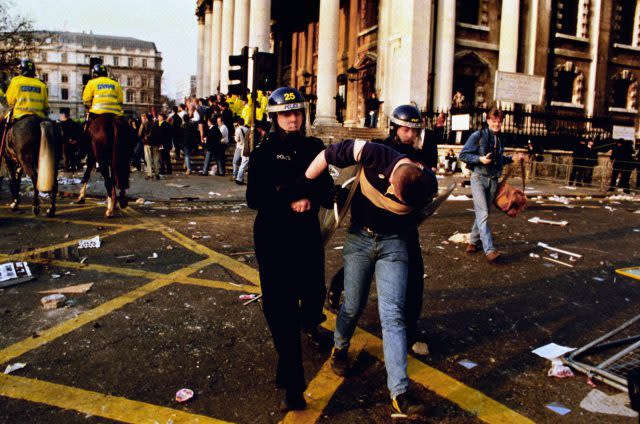Margaret Thatcher warned John Major over 'historic error' on economy

Margaret Thatcher tore into John Major over his handling of the economy, weeks after backing him to succeed her as prime minister, according to newly released official documents.
In an extraordinary private meeting, she rounded on her erstwhile protege, warning him he was on the verge of a "historic error" which could plunge the country into recession.
The files released by the National Archives in Kew, west London, underline how rapidly relations between the two soured after Mr Major entered No 10 following her shock resignation in November 1990.
While Mrs Thatcher had previously made clear he was her chosen successor, she quickly came to suspect he wanted to abandon her legacy as he spoke of his desire for a more "compassionate" Conservatism.

She was particularly incensed by his decision to scrap the "poll tax" - her flagship local government reform - even though its deep unpopularity had been a key factor in her downfall.
On Boxing Day 1990, Mr Major wrote to her inviting her to a face-to-face meeting in an attempt to clear the air.
It was an encounter he clearly approached with some trepidation, writing anxiously: "I am a little concerned at some of the press comment on a 'new style' as this suggests new policies and I don't wish to change the drift of policy."
The meeting took place in Mr Major's room in the House of Commons on January 3 1991, and Mrs Thatcher wasted no time in making her concerns known, warning that "excessively high" interest rates risked pushing the economy into recession.
She even compared the position to Winston Churchill's calamitous decision as chancellor in 1925 to return Britain to the gold standard - a move that led to deflation, mass unemployment and the General Strike.
"Mrs Thatcher said conditions on the economy were very tough indeed," the official minute of the meeting noted. "She believed that there was a danger of repeating Winston Churchill's historic error."
Mr Major appears to have been taken aback by her onslaught, retorting the current situation "was not remotely comparable".

While he wanted to get rates down, "snatching at an interest rate reduction at the first opportunity" would be counter-productive, creating the impression ministers were set on cuts "come what may".
Mrs Thatcher was not finished, turning to his decision to abandon the poll tax - or community charge as it was officially known - in the face of widespread criticism of rising bills.
"Local authorities would draw the conclusion that it was such a bad tax they could put it up as much as they liked and blame the government," she fumed.
Her solution was to strip councils of their responsibility for education, leaving them with a much-reduced set of powers and revenues.
The meeting appears to have done much to set the tone of the future relations between the two, with Mrs Thatcher increasingly becoming a thorn in the side of Mr Major - particularly over Europe.
It left ministers anxious to avoid further friction. Discussing plans for the 1992 general election, Conservative Party chairman Chris Patten wrote: "I understand Margaret's entourage are letting it be known that if she were not invited to the final rally she would be 'hurt'.
"It may be that inviting her to a rally at the beginning of the campaign, as we are proposing, will get around this difficulty."


